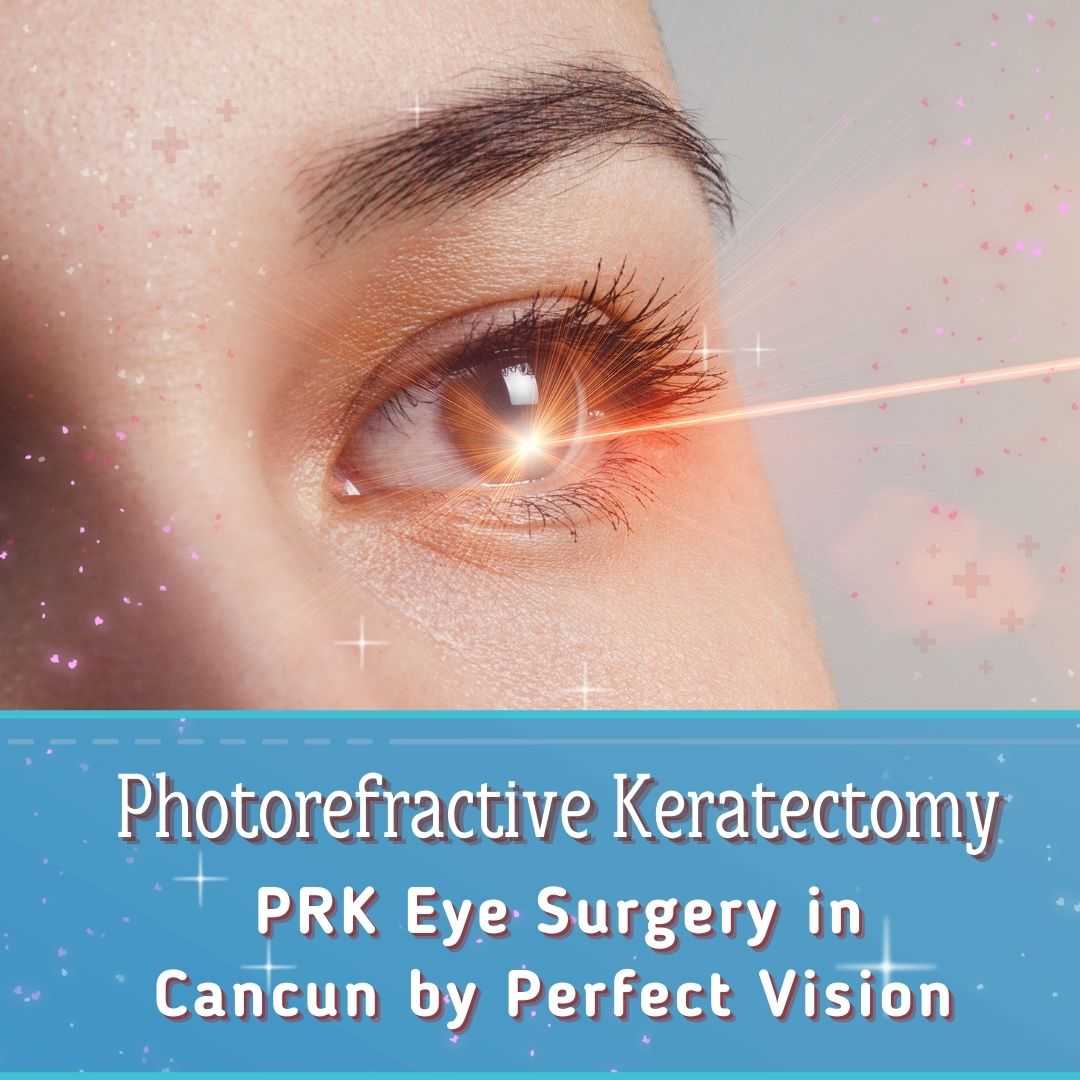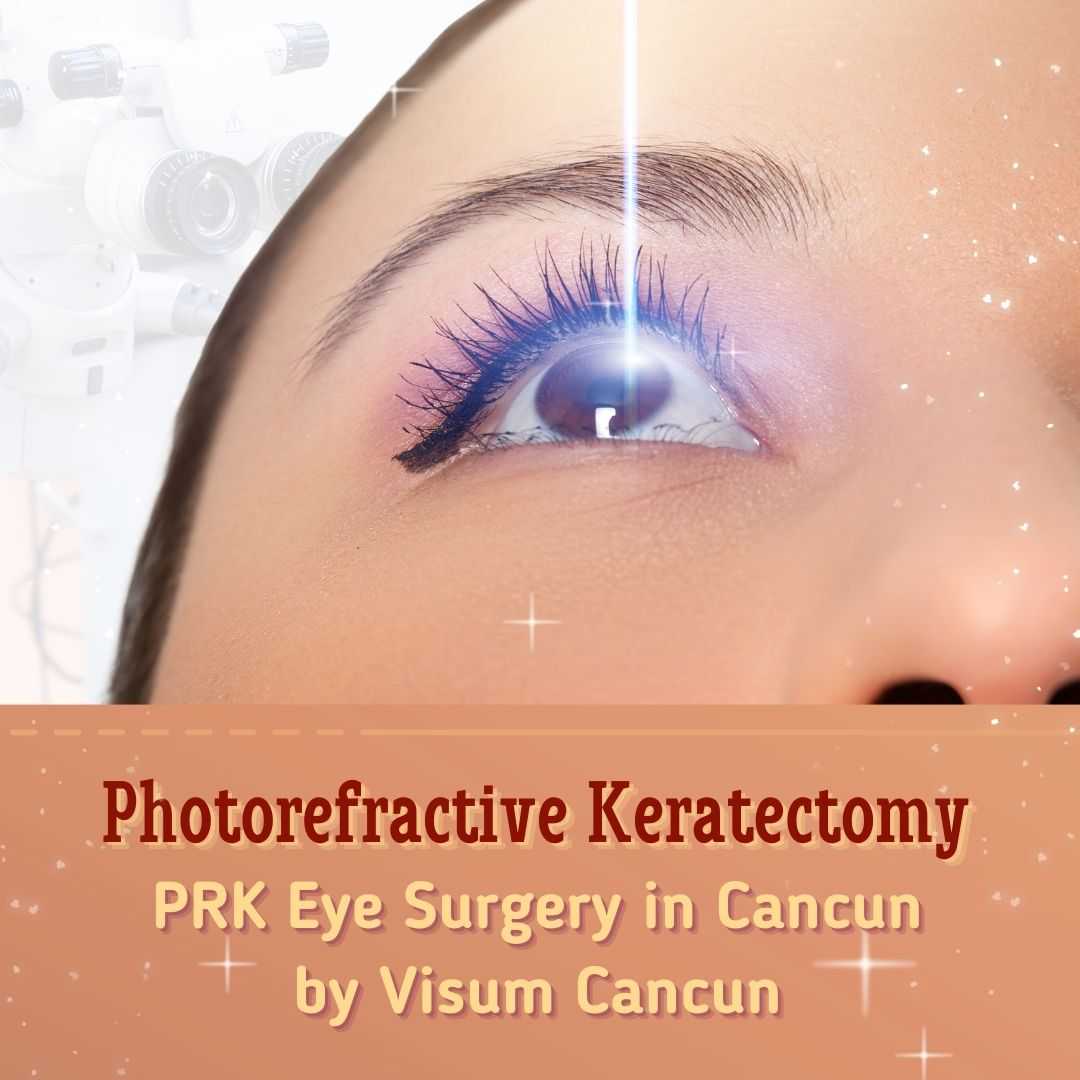Top 10 Eye Hospitals Worldwide

Welcome, fellow visionaries! Are you on a quest to find the absolute best eye hospitals in the world? Perhaps you or a loved one are facing a complex eye condition, seeking groundbreaking treatment, or simply looking for the highest standard of care available anywhere. It's a completely natural and important search. When it comes to something as precious as your eyesight, settling for anything less than excellence isn't an option. That's why we're diving deep into the realm of global ophthalmology to bring you insights into the institutions consistently recognized for their superior expertise, advanced technology, and compassionate patient care.
We understand that navigating the world of healthcare, especially for specialized treatments, can feel overwhelming. You might be wondering, "Where can I find truly world-class eye care?" or "What distinguishes a top-tier eye hospital from others?"
This detailed guide aims to answer all your pressing questions, drawing upon widely recognized rankings, clinical innovations, and patient outcomes to identify the leading institutions. We'll explore what makes these hospitals stand out, from their pioneering research and cutting-edge surgical techniques to their multidisciplinary approach to complex eye diseases. Whether you're dealing with glaucoma, cataracts, retinal disorders, or seeking advanced corneal transplants, knowing where the global leaders are can make all the difference.
Get ready to discover the powerhouses of ophthalmic medicine that are not just treating eye conditions but are actively shaping the future of vision care worldwide. Let's uncover the secrets behind the reputations of these esteemed centers and why they are often the preferred choice for those seeking unparalleled eye health solutions.
What Makes an Eye Hospital World-Class?
Defining a "world-class eye hospital" goes beyond simply having good doctors. It involves a synergy of factors that elevate an institution to global recognition. These hospitals are often pioneers, not just practitioners, of advanced eye care.
Key elements that contribute to their elite status include:
- Leading Ophthalmologists: They house internationally renowned experts, often leaders in their subspecialties, who are at the forefront of ophthalmic medicine. These specialists not only treat patients but also contribute significantly to academic research and medical education.
- Cutting-Edge Technology: Access to the latest diagnostic equipment and surgical tools is crucial. This includes advanced lasers, high-resolution imaging systems, and robotic-assisted surgical platforms that enable precision and better outcomes for various eye conditions.
- Pioneering Research and Innovation: The top eye hospitals in the world are actively involved in clinical trials and basic science research. They are developing new treatments, improving existing techniques, and pushing the boundaries of what's possible in vision restoration and preservation.
- Comprehensive Service Offerings: From routine eye exams to highly specialized surgeries for rare conditions, these hospitals offer a full spectrum of eye care services. This includes dedicated departments for glaucoma, retina, cornea, pediatric ophthalmology, neuro-ophthalmology, and more.
- High Patient Safety and Outcomes: They adhere to stringent international safety protocols and consistently achieve excellent patient outcomes, often tracking their success rates meticulously. Patient-centered care is paramount, ensuring comfort and clear communication throughout the treatment journey.
- Multidisciplinary Approach: For complex cases, these hospitals often collaborate with other medical specialties, such as neurology, endocrinology, and oncology, to provide holistic care, recognizing that eye health can be intertwined with overall systemic health.
How are the Top Eye Hospitals in the World Identified?
Identifying the top eye hospitals isn't a simple task, as various ranking methodologies exist. However, reputable organizations and expert panels typically consider a combination of quantitative and qualitative factors to establish these lists.
Key factors in their evaluation often include:
- Peer Reputation and Recommendations: Surveys of ophthalmologists and healthcare professionals worldwide play a significant role. Doctors often know which institutions their peers respect for complex cases or groundbreaking work.
- Clinical Performance and Patient Outcomes: This involves analyzing data on treatment success rates, complication rates, infection control, and patient satisfaction scores. Hospitals with consistently superior outcomes for various eye conditions are highly rated.
- Innovation and Research: The volume and impact of scientific research, publications in peer-reviewed journals, and the number of clinical trials conducted are crucial indicators of a hospital's commitment to advancing eye care. Institutions that develop new therapies or surgical techniques often lead the field.
- Technology and Infrastructure: The presence of state-of-the-art diagnostic and surgical equipment, along with modern facilities, contributes to a hospital's ability to provide the most advanced treatments.
- Specialization and Breadth of Services: Hospitals that offer highly specialized care across all ophthalmic subspecialties, from pediatric eye care to complex retinal surgeries, often score higher.
- International Patient Services: For institutions serving a global clientele, facilities for international patients, including language support, travel assistance, and cultural sensitivity, are also considered.
- Accreditations and Certifications: Adherence to international quality standards, such as those from Joint Commission International (JCI), signifies a commitment to global best practices in healthcare.
Which are the Top 10 Eye Hospitals Globally?
While exact rankings can vary slightly depending on the source and criteria, certain institutions consistently appear at the top of lists for the best eye hospitals in the world. These centers are renowned for their exceptional patient care, pioneering research, and cutting-edge treatments.
Here's a list of highly regarded institutions, presented without specific numerical ranking as their strengths can differ by specialty:
- Bascom Palmer Eye Institute (USA): Part of the University of Miami Health System, consistently ranked as the #1 ophthalmology hospital in the U.S. for decades. Known for its comprehensive research, education, and patient care in all ophthalmic subspecialties.
- Moorfields Eye Hospital (UK): One of the oldest and largest centers for eye treatment, teaching, and research in the world. Located in London, it's a global leader, particularly strong in complex retinal conditions and genetic eye diseases.
- Wilmer Eye Institute, Johns Hopkins Medicine (USA): A premier academic eye center in Baltimore, known for its groundbreaking research, innovative treatments, and comprehensive approach to vision care, including strong programs in glaucoma and neuro-ophthalmology.
- Wills Eye Hospital (USA): Located in Philadelphia, it’s a global leader in ophthalmology with a rich history of clinical excellence, education, and research. It handles a high volume of complex cases and is at the forefront of surgical innovation.
- LV Prasad Eye Institute (India): A major non-profit eye care organization with its main campus in Hyderabad. It's renowned for its high-quality, equitable eye care services, extensive research, and training programs, serving millions across India and beyond.
- Singapore National Eye Centre (Singapore): A leading regional and international ophthalmology center known for its specialized services, clinical research, and training. It's particularly strong in refractive surgery, glaucoma, and medical retina.
- Massachusetts Eye and Ear (USA): An affiliate of Harvard Medical School, located in Boston, this institution is a world-renowned leader in ophthalmology and otolaryngology research and care. It excels in complex eye conditions and pioneering new treatments.
- Doheny Eye Institute, UCLA Health (USA): Based in Los Angeles, Doheny has a long history of significant contributions to ophthalmic research and clinical care, with a strong focus on retinal diseases, glaucoma, and ophthalmic genetics.
- Rothschild Foundation Hospital (France): Located in Paris, this hospital is a major European center for ophthalmology, known for its expertise in ocular surgery, including complex cataract and retinal procedures, as well as neuro-ophthalmology.
- Scheie Eye Institute, University of Pennsylvania (USA): Another highly respected academic eye center known for its strong research programs and clinical excellence across all subspecialties, offering advanced care for a wide range of eye diseases.
These institutions are beacons of hope for patients worldwide, continuously pushing the boundaries of what is possible in eye care.
What Specialized Services Do These Leading Eye Hospitals Offer?
The top 10 eye hospitals in the world are distinguished by their comprehensive and highly specialized services, addressing every conceivable eye condition with advanced expertise. They don't just offer general eye care; they provide deep dives into intricate subspecialties.
Some of the specialized services typically found at these elite institutions include:
| Specialty Area | Key Services Offered |
|---|---|
| Cataract & Refractive Surgery |
|
| Retina & Vitreous |
|
| Glaucoma |
|
| Cornea & Ocular Surface |
|
| Pediatric Ophthalmology |
|
| Neuro-Ophthalmology |
|
| Ocular Oncology |
|
These centers are essentially full-service hubs for any eye-related issue, often working with other medical departments for comprehensive care.
Are There Specialized Eye Hospitals for Pediatric Eye Care?
Indeed, specialized eye care for children is a critical component of leading ophthalmology institutions. Children's eyes are not just smaller versions of adult eyes; they require a distinct approach due to their ongoing development and unique set of potential conditions. Many of the top eye hospitals in the world either house dedicated pediatric ophthalmology units or have strong affiliations with premier children's hospitals.
These specialized centers offer expertise in a wide range of pediatric eye conditions, including:
- Congenital Cataracts and Glaucoma: Early diagnosis and intervention are crucial to prevent permanent vision loss in children.
- Strabismus (Crossed or Misaligned Eyes): Diagnosis and surgical correction to ensure proper eye alignment and binocular vision development.
- Amblyopia (Lazy Eye): Comprehensive treatment programs to stimulate vision development in the weaker eye.
- Retinopathy of Prematurity (ROP): Screening and treatment for premature infants to prevent severe vision impairment.
- Genetic Eye Diseases: Diagnosis, counseling, and management for inherited conditions that affect vision.
- Pediatric Ocular Tumors: Specialized care for rare eye cancers in children, such as retinoblastoma.
- Refractive Errors: Management of myopia, hyperopia, and astigmatism in children, including prescription for glasses or contact lenses.
The pediatric ophthalmologists at these centers are not only highly skilled in diagnosing and treating these conditions but also experienced in communicating with children and their families, ensuring a comforting and effective care environment. They often utilize child-friendly diagnostic tools and surgical techniques adapted for delicate young eyes.
What is the Typical Cost of Eye Treatments at Top Hospitals?
Understanding the cost of eye treatments at the world's leading eye hospitals can be complex, as prices are influenced by numerous factors. It's important to remember that these institutions, while offering unparalleled care, often come with higher price tags compared to standard clinics.
Factors affecting treatment costs include:
- Type of Procedure: A routine cataract surgery will naturally cost less than a complex retinal detachment repair or an experimental gene therapy for a rare eye disease.
- Geographic Location: Healthcare costs vary significantly by country. For example, treatments in the United States or Western Europe generally tend to be more expensive than in some parts of Asia or Eastern Europe, even at equally reputable institutions.
- Hospital Reputation and Expertise: The more renowned the institution and the specialists, the higher the fees may be, reflecting their accumulated expertise and the advanced technology they employ.
- Insurance Coverage: For patients with international health insurance, a significant portion of the cost might be covered. However, many specialized or experimental treatments may not be fully reimbursed.
- Diagnostic Tests and Post-Operative Care: The overall cost often includes pre-operative diagnostics (imaging, consultations), the surgery itself, medication, and post-operative follow-up appointments.
- Duration of Stay: If a procedure requires a hospital stay, accommodation and related services will add to the total cost.
To provide a general idea, without being exhaustive:
- Cataract Surgery (uncomplicated): Can range from $2,000 to $7,000 per eye, potentially more for premium lenses or complex cases, in developed countries.
- LASIK Surgery: Typically ranges from $2,000 to $4,000 per eye.
- Retinal Surgery (e.g., for detachment): Can be anywhere from $5,000 to $20,000 or more, depending on complexity and location.
- Corneal Transplant: Often in the range of $10,000 to $30,000, including donor tissue and surgery.
For precise estimates, it is always recommended to contact the specific hospital's international patient services department directly for a detailed quote tailored to your condition and desired treatment plan.
What Innovations in Eye Care Are Pioneered by These Leading Centers?
Innovation is at the core of what makes the world's leading eye hospitals truly exceptional. These institutions are not just adopting new technologies; they are actively developing and refining them, pushing the boundaries of what's possible in vision restoration and preservation.
Some of the key innovations being pioneered include:
- Gene Therapy for Inherited Retinal Diseases: Significant breakthroughs are occurring in treating previously untreatable genetic conditions like Leber Congenital Amaurosis and retinitis pigmentosa, with new therapies directly targeting faulty genes.
- Artificial Intelligence (AI) and Machine Learning: AI is being utilized for early and accurate diagnosis of diseases like diabetic retinopathy and glaucoma, often even before symptoms become apparent, by analyzing vast amounts of imaging data.
- Advanced Robotic Surgery: Robots are being employed for ultra-precise surgical procedures, particularly in delicate retinal surgery, enhancing accuracy and potentially leading to better outcomes and faster recovery.
- Stem Cell Research and Regenerative Medicine: Scientists at these centers are exploring the use of stem cells to repair damaged retinal cells or replace lost ones, offering hope for conditions like macular degeneration.
- Precision Medicine and Personalized Treatments: Tailoring treatments based on an individual's genetic makeup and specific disease characteristics for conditions like glaucoma and uveitis, optimizing efficacy and minimizing side effects.
- Novel Drug Delivery Systems: Developing new ways to deliver medication directly to the eye, reducing the frequency of injections or improving drug absorption for conditions like AMD and diabetic macular edema.
- Bioengineered Corneas and Bionic Eyes: Research into creating artificial corneas and advanced prosthetic devices (bionic eyes) to restore vision in patients with severe corneal damage or profound blindness.
These innovations represent a future where more eye conditions are treatable, and more individuals can maintain or regain their precious eyesight, all driven by the relentless pursuit of excellence at these world-class centers.
How to Choose the Best Eye Hospital for Your Specific Needs?
Selecting the best eye hospital is a highly personal decision that should be guided by your specific condition and individual needs. While general rankings provide a good starting point, a tailored approach is essential.
Here's a guide to help you make an informed choice:
- Identify Your Specific Condition: Different hospitals might excel in different areas. Is it a complex retinal disorder, advanced glaucoma, a rare corneal disease, or pediatric issue? Seek out centers renowned for your particular diagnosis.
- Research Specialist Expertise: Look beyond the hospital's general reputation to the specific ophthalmologists who treat your condition. What are their credentials, experience, and research contributions in that area?
- Consider Hospital's Subspecialty Focus: Some hospitals have world-class departments for retina, others for glaucoma, and some for neuro-ophthalmology. Choose one whose primary strength aligns with your need.
- Evaluate Technology and Innovation: Does the hospital use the latest diagnostic and surgical equipment relevant to your condition? Are they involved in clinical trials that might offer new treatment options?
- Seek Patient Reviews and Testimonials: While anecdotal, patient experiences can offer insights into the hospital's patient care, communication, and overall environment.
- Assess International Patient Services: If you are traveling from abroad, check for dedicated international patient departments that offer assistance with appointments, language, accommodation, and travel logistics.
- Location and Logistics: Consider the practicality of travel, especially if multiple visits or a lengthy stay is required. Is it feasible for you and your family?
- Cost and Insurance Coverage: Obtain detailed cost estimates and verify what your insurance plan will cover. Inquire about payment plans or financial assistance if needed.
- Second Opinions: For complex or rare conditions, obtaining a second opinion from another highly-rated institution can provide valuable peace of mind and help confirm the best course of action.
By carefully evaluating these factors, you can narrow down your options and choose an eye hospital that offers the most appropriate and advanced care for your vision needs.
What are the Benefits of Seeking Treatment at a Top-Tier Eye Hospital?
The decision to seek treatment at a top-tier eye hospital, especially one among the top 10 eye hospitals in the world, comes with a multitude of significant benefits that can profoundly impact patient outcomes and overall experience.
Here are some of the primary advantages:
- Unmatched Expertise: You gain access to some of the world's most brilliant and experienced ophthalmologists, many of whom are pioneers in their respective subspecialties. Their extensive knowledge is invaluable for complex or rare conditions.
- Access to Cutting-Edge Technology: These hospitals invest heavily in the latest diagnostic tools and surgical equipment, which allows for more accurate diagnoses and less invasive, more effective treatments.
- Pioneering and Innovative Treatments: Often, new therapies and surgical techniques are first developed and refined at these leading centers through rigorous research and clinical trials, offering options that might not be available elsewhere.
- Superior Diagnostic Accuracy: With advanced imaging, genetic testing, and highly specialized labs, these institutions can achieve a more precise diagnosis, which is fundamental to effective treatment.
- Comprehensive and Integrated Care: They provide a full spectrum of services under one roof, from diagnostics to surgery and rehabilitation. For complex cases, a multidisciplinary team approach ensures all aspects of a patient's health are considered.
- Better Patient Outcomes: Due to their expertise, technology, and adherence to best practices, top eye hospitals typically report higher success rates and lower complication rates for various procedures.
- Focus on Education and Research: Being academic centers, they attract top talent and are continuously engaged in advancing medical knowledge, ensuring that patients benefit from the latest scientific discoveries.
- Specialized Programs for Complex Conditions: Many offer dedicated clinics for rare or challenging eye diseases, providing focused expertise and resources that general ophthalmology practices cannot match.
- Global Reputation and Trust: Their consistent high rankings and international recognition provide a strong sense of trust and confidence, especially for patients traveling from different regions or countries.
Ultimately, choosing a top-tier eye hospital means investing in the highest possible standard of care for your precious eyesight.
Looking for world-class healthcare solutions? PlacidWay helps you navigate global medical options to find the best treatments and facilities tailored to your needs. Explore your possibilities for advanced vision care and more with PlacidWay today!


.png)





.png)



Share this listing